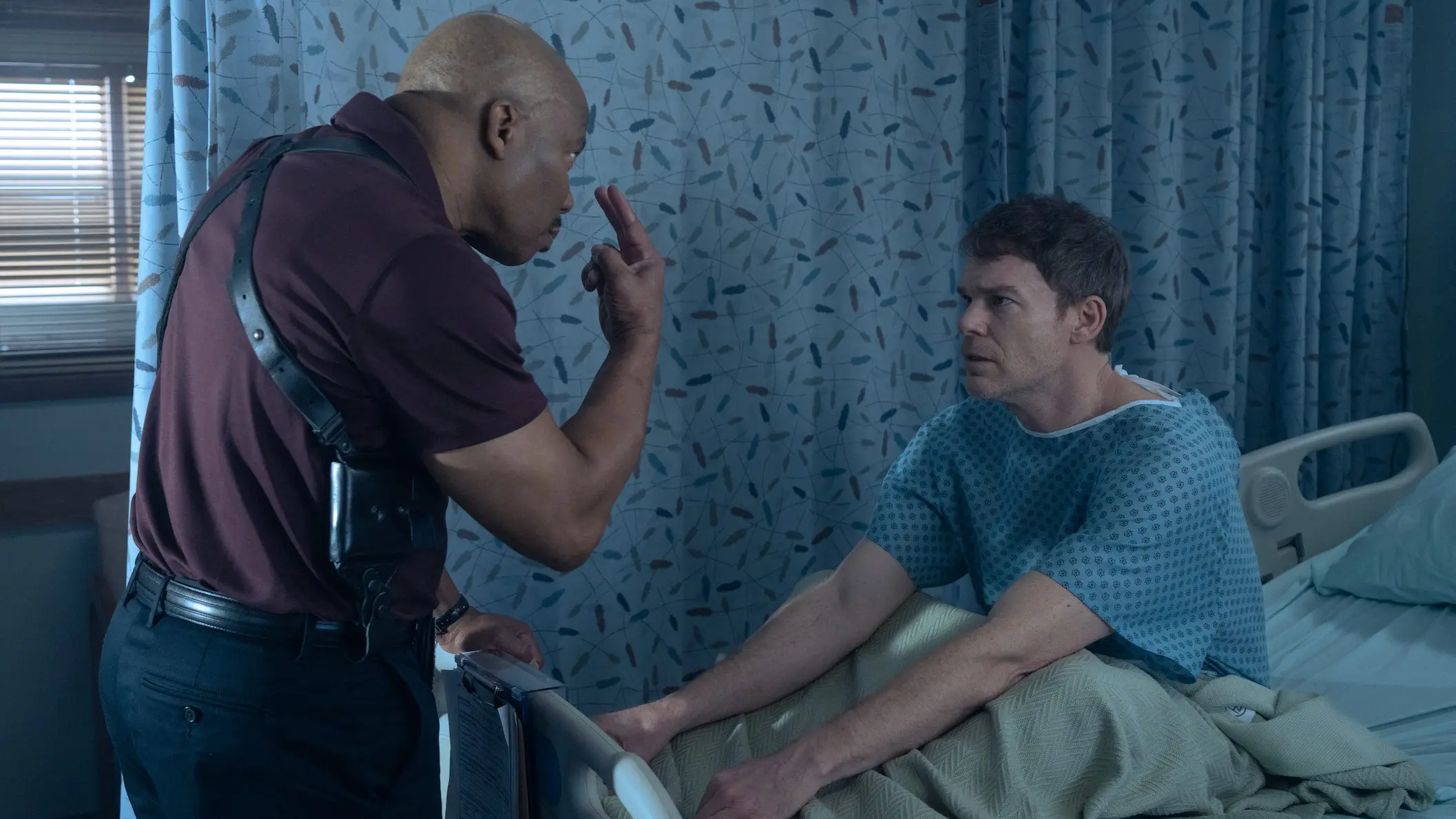Dexter: Resurrection Finale Ending Explained: Is choosing love Dexter’s greatest strength or his ultimate weakness?
-

Dexter: Resurrection has proven to be both a return to form and a daring continuation of the franchise. Developed by Clyde Phillips, the crime drama mystery series picks up after the events of Dexter: New Blood and follows Dexter Morgan, portrayed by Michael C. Hall, once again wrestling with his “Dark Passenger” while navigating a new life in New York. Premiering July 11, 2025, on Paramount+ Premium, the series reunited Hall with an ensemble cast including Uma Thurman, Jack Alcott, David Zayas, Ntare Mwine, and Peter Dinklage.
For longtime fans, Dexter: Resurrection walks the fine line between honoring the show’s original identity and modernizing it for today’s prestige television landscape. It expands the mythology of Dexter Morgan while diving deeper into the themes that made him so compelling: justice, morality, and the paradox of a killer who believes love can redeem him. But does the finale confirm love as his salvation, or expose it as his Achilles heel?
The power and peril of love in Dexter’s journey
The final episode, titled And Justice For All…, makes no attempt to reinvent the wheel. Instead, it leans into the idea that Dexter has accepted who he is: not a man in conflict with his urges, but one who embraces them while claiming to do it all for love - love of Harrison, of family, of belonging. Love, in Dexter: Resurrection, becomes both his justification and his weakness.
When Dexter calls Harrison from inside Prater’s vault, it’s not strategy or survival instincts that save him - it’s trust in his son’s willingness to help. Their collaboration underscores how much Dexter depends on connection, even though he’s a man defined by secrecy. Yet that dependence is dangerous. Charley’s threat to target Harrison is a reminder that loving someone gives Dexter’s enemies a direct line to him. By choosing love, Dexter gains strength, but he also creates vulnerabilities that his detached, solitary self never had.
The finale reinforces that duality. Dexter may be unstoppable when fueled by devotion to Harrison, but it’s precisely this devotion that risks exposing him. His greatest weapon and his greatest weakness are the same thing - and that’s what keeps his story compelling.
Breaking down the finale
The finale’s action stays surprisingly contained, largely unfolding in Prater’s vault and penthouse. After Batista’s death, Dexter manipulates Harrison’s catering job to orchestrate an escape. What follows is classic Dexter improvisation, moral bargaining, and an almost absurd ability to bend the chaos in his favor.
The reveal that Prater has been hoarding incriminating evidence - including proof that Charley staged Mia’s suicide - hands Dexter leverage at just the right moment. Yet Dexter isn’t aiming for reform or redemption. When Charley leaves him to die, he relies on Harrison’s blind trust to keep moving forward. Their teamwork, though flawed, is at the heart of the finale.
The climax comes when Prater corners Harrison, forcing Dexter to return and finally give him the Bay Harbor Butcher treatment. In a chilling, unrestrained kill sequence, Dexter indulges fully in his dark side without the pretense of justice or ritual. Prater doesn’t even earn a blood slide - a symbolic rejection of Dexter’s past attempts to impose order on his compulsion.
By the end, Dexter escapes by framing Prater through his own severed thumb, while Claudette uncovers the cache of evidence that ties up the wider narrative. The episode closes not with suspense, but with quiet certainty: Dexter sails away, content with his double life and his family ties, having chosen to embrace both his love and his darkness.
Dexter: Resurrection delivers a finale that’s both predictable and fitting. The contained staging and lack of shocking twists might frustrate some, but they serve a purpose: to cement Dexter Morgan as a man at peace with being both killer and father. His love for Harrison is what drives him, yet it’s also what places him in constant danger. In the end, whether love is Dexter’s greatest strength or his ultimate weakness is left unresolved - and that’s the point.
TOPICS: Dexter: Resurrection
- Creator Clyde Phillips reveals major villain update for Dexter: Resurrection season 2
- Dexter: Resurrection Episode 10 release date and where to watch
- Dexter: Resurrection Episode 8 - What happened to Dexter after Leon Prater showed up at his dinner with Harrison?
- Dexter: Resurrection Episode 8 Release Date and Where to Watch